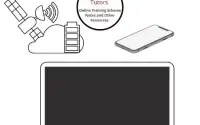Long Vowel Sound /u:/ Sound Speech Work English JSS 1 Second Term Lesson Notes Week 3
Lesson Note: Speech Work (English Grammar) – JSS 1, Second Term, Week 3
Captivating Title
Mastering the Long Vowel Sound: /u:/
Focus Keyphrase
Long Vowel Sound /u:/
SEO Title
Long Vowel Sound /u:/ Lesson: JSS 1 Second Term
Slug
long-vowel-sound-u-jss1
Meta Description
Learn how to recognize, pronounce, and use the long vowel sound /u:/ in this engaging English Grammar lesson for JSS 1 students.
Lesson Plan
Subject: English Language
Class: Junior Secondary School 1 (JSS 1)
Term: Second Term
Week: 3
Age: 10–12 years
Topic: Speech Work
Sub-Topic: Long Vowel Sound /u:/
Duration: 40 minutes
Behavioral Objectives
At the end of this lesson, students should be able to:
- Identify the long vowel sound /u:/ in words.
- Pronounce words containing the /u:/ sound correctly.
- Differentiate /u:/ from other vowel sounds.
- Use words with the /u:/ sound in sentences effectively.
Keywords
- Long vowel sound
- /u:/
- Pronunciation
Set Induction
The teacher will greet the students and ask them to say the word “food.” Then the teacher will compare it with “foot,” asking students to identify any differences in pronunciation.
Entry Behavior
Students already know the difference between long and short vowel sounds from the previous lesson.
Learning Resources and Materials
- Audio recordings of /u:/ sounds.
- Charts with examples of /u:/ words.
- Flashcards for practice.
Building Background/Connection to Prior Knowledge
The teacher will remind students of the long vowel sounds covered in previous lessons and introduce the specific characteristics of /u:/.
Embedded Core Skills
- Listening
- Speaking
- Communication
Content
The Long Vowel Sound /u:/
- What is the /u:/ Sound?
- The /u:/ sound is a long vowel sound. It is pronounced with a rounded mouth and slightly tense tongue.
- Examples of Words with /u:/
- Food, mood, school, fool, pool, boot, moon, tooth, roof, goose.
- Pronunciation Tips
- Hold the sound longer than a short /u/ sound.
- Ensure your lips are rounded during pronunciation.
- Word Pairs with /u:/ and Other Sounds
- Food vs. Foot
- Pool vs. Pull
- Fool vs. Full
15 Fill-in-the-Blank Questions (Evaluation)
- We had breakfast in the ___.
a) food b) school c) room d) moon
(Answer: c) - The ___ was shining brightly.
a) mood b) moon c) food d) pool
(Answer: b) - He took his books to ___.
a) fool b) school c) roof d) room
(Answer: b) - They swam in the ___.
a) moon b) school c) pool d) roof
(Answer: c) - The ___ was in a good mood.
a) goose b) tooth c) food d) fool
(Answer: d) - The children played on the ___.
a) roof b) pool c) fool d) school
(Answer: a) - I saw a ___ in the park.
a) food b) goose c) room d) tooth
(Answer: b) - He cleaned his ___.
a) tooth b) pool c) food d) roof
(Answer: a) - The dog ate its ___.
a) food b) school c) fool d) moon
(Answer: a) - The ___ of the house was repaired.
a) pool b) roof c) moon d) fool
(Answer: b) - The ___ rose high in the sky.
a) moon b) roof c) school d) pool
(Answer: a) - The children are in a happy ___.
a) moon b) mood c) school d) fool
(Answer: b) - The boy swam to the bottom of the ___.
a) school b) fool c) pool d) roof
(Answer: c) - The ___ was fixed yesterday.
a) roof b) moon c) mood d) food
(Answer: a) - They walked across the ___ to reach the park.
a) food b) roof c) pool d) mood
(Answer: b)
15 FAQs with Answers (Class Activity Discussion)
- What is the /u:/ sound?
It is a long vowel sound pronounced with a rounded mouth. - Give two examples of words with /u:/ sounds.
Examples: food, mood. - How is the /u:/ sound pronounced?
By holding the sound longer and rounding your lips. - Give a word pair with /u:/ and another vowel sound.
Example: Food vs. Foot. - What is the difference between /u:/ and /u/?
/u:/ is longer and held for more time. - Does ‘school’ have /u:/ or /u/?
It has /u:/. - What sound is in ‘moon’?
/u:/ sound. - Does the word ‘roof’ have /u:/?
Yes, it has the /u:/ sound. - Pronounce the word ‘fool.’ What sound does it have?
It has the /u:/ sound. - What sound is in the word ‘pool’?
It has the /u:/ sound. - Does ‘goose’ contain /u:/?
Yes, it does. - Is /u:/ shorter than /u/?
No, /u:/ is longer. - Which sound is in ‘tooth’?
The /u:/ sound. - Why is it important to learn vowel sounds like /u:/?
To improve pronunciation and speaking skills. - Can you name a word with /u:/ that rhymes with ‘school’?
Example: Pool.
Presentation Steps
Step 1: Revision of the Previous Topic
- The teacher will ask students to recall examples of long and short vowel sounds.
Step 2: Introduction of the New Topic
- The teacher will introduce the long vowel sound /u:/, giving examples and pronunciation tips.
Step 3: Student Contributions and Corrections
- Students will practice pronouncing /u:/ words and provide their examples, which the teacher will correct.
Teacher’s Activities
- Demonstrate the correct pronunciation of /u:/ using examples.
- Provide guidance on differentiating /u:/ from other sounds.
- Correct students’ mistakes and provide feedback.
Learners’ Activities
- Listen to the teacher’s demonstration of /u:/ pronunciation.
- Practice pronouncing words with /u:/.
- Differentiate /u:/ from other vowel sounds in words.
Assessment
- Ask students to pronounce these words and identify the /u:/ sound: food, pool, moon, school, fool.
Evaluation Questions
- What is the long vowel sound /u:/?
- Give three examples of words with the /u:/ sound.
- How do you pronounce the /u:/ sound?
- Differentiate /u:/ from /u/.
- What vowel sound is in the word ‘roof’?
- Does the word ‘pool’ have /u:/?
- Identify the vowel sound in the word ‘school.’
- Which word has /u:/: foot or food?
- Pronounce the word ‘fool.’ What sound does it have?
- Why is it important to learn /u:/?
Conclusion
The teacher will summarize the lesson by reiterating the importance of the /u:/ sound and encouraging students to use /u:/ words in sentences at home.

Related
Related posts:
- Revision Test Speech Work English JSS 1 Second Term Lesson Notes Week 11
- Introduction to Diphthongs Speech Work English JSS 1 Second Term Lesson Notes Week 10
- Vowel Sound /ɜː/ Sound Speech Work English JSS 1 Second Term Lesson Notes Week 5
- Vowel Sound /ʌ/ Sound Speech Work English JSS 1 Second Term Lesson Notes Week 4
- Vowel Sounds /u/ and /u:/ Sound Speech Work English JSS 1 Second Term Lesson Notes Week 2
Related Posts

Historical Development of Computers Computer Studies JSS 1 First Term Lesson Notes Week 2

Understanding Purification in Islam: At-Taharah and Its Importance Islamic Religious Studies JSS 1 First Term Lesson Notes Week 6
THIRD TERM E-LEARNING NOTES JS 1 (BASIC 7) SUBJECT: BUSINESS STUDIES
About The Author
Edu Delight Tutors
Am a dedicated educator with a passion for learning and a keen interest in technology. I believe that technology can revolutionize education and am committed to creating an online hub of knowledge, inspiration, and growth for both educators and students. Welcome to Edu Delight Tutors, where learning knows no boundaries.